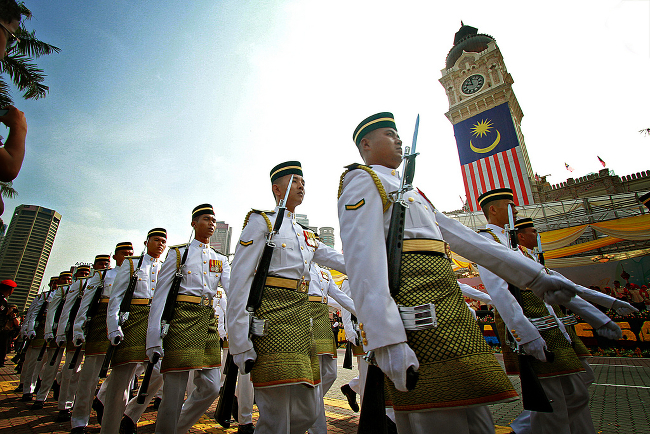It is hard to believe that more than a year has passed since the 1MDB scandal, in which nearly a billion dollars went missing from a Malaysian state-owned development company and, allegedly, turned up in Malaysian Prime Minister Najib Razak’s bank account. Despite this and after numerous protests, he is firmly in power, having effectively purged dissidents from his own party and weakened the already fragmented opposition. Now, the target is now those who brought the scandal to light – the media, particularly Malaysia’s independent, new wave journalist outfits, who are increasingly being blocked or censored, or even indirectly shut down.
“The Barisan Nasional-led coalition government dominant position is under threat like never before,” said Josef Benedict, Asia Pacific Campaigner for Amnesty International. “Authorities have led a disturbing crackdown on freedom of expression in an apparent bid to tighten its grip on power.”
Authoritarianism is, sadly, not new in Malaysia, which, despite its outward image as a open, diverse, model emerging economy, has been firmly un-Democratic for decades. Najib’s party, the United Malay National Organization (UNMO), and the coalition it controls, Barisan Nasional (BN) have been in power since 1973, making them the longest ruling elected party in the world. Historically, elections weren’t even close; until 2008, BN maintained a two-thirds majority of parliamentary seats, allowing it to change the constitution at will.
This unchecked power and complete control over both the country’s vast bureaucracy, but also natural resources, most notably palm oil and petroleum. Petrol revenues provide upwards of 40% of Malaysia’s yearly governmental budget, while Malaysia palm oil conglomerates account for 39% of global palm oil production. Put together, these two resources made up nearly a third of Malaysian exports, and a large majority of government revenues. It’s no surprise that Transparency International, a global NGO that monitors corruption, counts Malaysia as one of the countries in the region where corruption is getting worse.
Only in the past decade, when cracks began to emerge in the BN coalition, alongside a move to increase foreign investment in technology, did an independent media begin to emerge. It was mostly online, due to the distributive power of the Internet, and was aided by Malaysia’s high Internet penetration. Though the mainstream media continued to toe the party line, new outlets such as The Edge, The Malaysia Insider, and Sarawak Report began to report critically on the Government.
“Many of the online local media outlets have taken the baton and gone further with the story, looking at the details of the internal investigations,” said Crispin.
Thus, when the Wall Street Journal broke the story about the scandal, local outlets followed with their own hard-hitting reporting. The Government responded by throwing the kitchen sink, even, according to CPJ, considering arresting the WSJ journalist when he was leaving the country. They banned the color yellow at rallies (it was used by the Bersih movement to signify their demand for clean elections), neutered the ability of independent investigators from looking into the allegations, and then, said the $681 million USD deposit came from another source. That was, amazingly, meant to shut down debate.
Needless to say, local media kept hitting Najib and the BN ruling coalition hard. The space is now shrinking, much to concern of many observers.
“A certain space had been opened through independent online media – led by MalaysiaKini, The Malaysia Insider and Sarawak Report. This is what the Government is very deliberately cracking down on,” said Shawn Crispin, Senior Southeast Asia Representative for the Committee to Protect Journalists.
It started with critical sites being blocked. Then came indirect methods. For example, The Malaysia Insider recently shut down, but only because it was forced into an untenable financial corner when it’s revenue dropped due to companies – many state-owned – refusing to advertise in a paper that was critical of the Government. Whether BN had anything to do with this is still uncertain, but it certainly would not surprise me. More recently, the open content platform Medium was even blocked.
Why is this happening now? Partly due to regional elections in the critically important state of Sarawak earlier this month, which were accompanied by blatant authoritarian tactics including the refusal to allow civil society to enter the state, the repression of non-state approved journalists, and the blocking of the independent, multilingual site Sarawak Report. The result? BN won 72 or 82 seats with very low turnout.
Malaysia’s next elections are coming up in 2018 – plenty of time for BN to strengthen its grip on power and further move the country further away from Democracy. The question is, will the world care? Malaysia remains an important trade partner for many world powers, including its formed colonial overlord, the United Kingdom, and the United States, which has led to a muted global reaction to the events of the past year. There have been no sanctions at all, just occasional, firmly worded statements.
“The international community cannot ignore the dramatically shrinking space for freedom of expression in Malaysia,” said Benedict. “Silence by the international community will in effect just send the message that the Malaysian authorities have a blank check.”
The media crackdown is the latest sign that we need to pay attention to Malaysia, otherwise, it may join its neighbor Thailand and become another authoritarian despot. That’s the last thing Southeast Asia needs.
Photo: Ishak J/Global Comment

